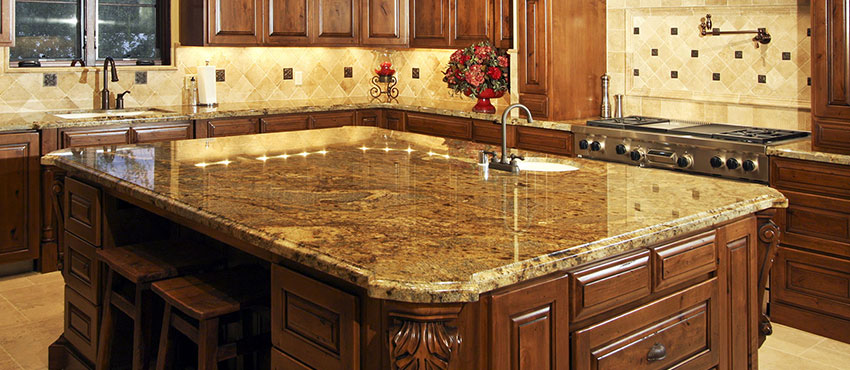Dec
How to Remove Hard Water Stains from Granite Countertops
- 2020
- bruce
Granite is tough and can withstand plenty of elements, but if you live in areas with hard water, your granite can develop hard water stains giving your counters a dull, ugly look.
To restore your countertops to their former glory, you need to get rid of the stains. How do you do this? Here are tips on how to remove hard water stains from granite countertops:
Why does hard water stain granite?
With all the granite toughness, the last thing you expect is for something as simple as water to stain it. If you are like other homeowners, you have your granite counters in the kitchen or bathroom. These places have water all the time, so the hard water is always in contact with your counters.
Hard water contains magnesium and calcium. When you allow water to sit on your counters for a long time, the water evaporates, leaving the hard deposits behind. Over time, the deposits accumulate, and you end up with dull, whitish stains on your countertops.
Although hard water stains don’t harm your countertops, they get harder to remove with time.
How to remove hard water stains from granite countertops
How you remove the stains varies depending on the type of stains you have. To help you out, here are tips on how to remove them:
Removing light stains
If there are only a few stains, you can remove them using a mild detergent and water on a sponge. You can also use a cleaning product tailored for cleaning granite.
The cool thing with light water stains is they are easy to remove. If the sponge doesn’t clean the stains, use a brush with soft bristles or a toothbrush. You should put the cleanser on the stain, then gently scrub it with your brush to lift the mineral deposits.
Once you are done, rinse the countertops with clean water and dry with a towel.
If you don’t want this, you can use a designated granite cleaner. Let the cleaner sit on the stain for at least 30 minutes to loosen the minerals, then gently scrub the counters with a soft brush. Finally, rinse and dry the counters once the stain is gone.
Removing slightly stubborn hard water stains
If you have tried the above tricks and none is working, try out the baking soda. Create a baking soda paste, apply it to the hard water stain, and gently scrub it with a soft bristle brush.
Once you are done, rinse it with fresh water and dry the countertops with a towel.
Getting rid of stains around faucets
It’s normal to have water rings around the base of the faucet. If your countertops have the rings, bring out the big guns—a putty knife or razor blade. Ensure the knife’s edge is flat against granite, then remove the mineral deposits by pushing the blade against the stains.
Be cautious when doing it and ensure you apply gentle pressure, so you don’t make gouges in the stone surface or damage the sealant.
If you are doing the right thing, the buildup will flake off, and all you need to do is wipe it with a sponge, rinse the countertops with clean water and dry them with a towel.
If you try removing the stains with the putty knife, but you make little progress, use a sharp, clean razor blade. Like with the knife, ensure the razorblade is level with the granite, then work slowly while loosening the mineral deposits.
Besides taking care not to damage your countertops with the sharp edges, take care not to cut your fingers.
How can you prevent stains from coming about?
Although it’s hard to avoid granite stains, you can reduce their chances of forming. How do you do this?
Protect the sealant
Granite is naturally porous, and when you don’t protect the sealant, the sealant comes off, increasing the chances of stains forming.
Stay away from acidic cleaners.
You should never use acidic cleaners, even natural ones such as lemon or vinegar, as they etch the surfaces giving the stains easy access. You also should steer clear of steel wool and other abrasive materials that can scratch the surfaces.
Reseal the countertops
Even with the best care, it’s common for the seal to wear out. To keep your countertops protected, reseal the counters at least once a year. You can do the resealing or hire expert granite installers to help you out.


